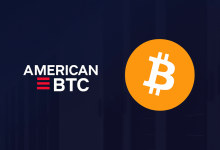Revolut Integrates Polygon to Offer Zero-Fee Stablecoin Transfers and Remittances


What Is Revolut Bringing to Its App Through Polygon?
Revolut, one of Europe’s largest fintech platforms with more than 65 million users across 38 countries, is embedding Polygon directly into its app to unlock a suite of blockchain-based features. The rollout includes zero-fee remittances using USDC and USDT, in-app crypto card payments, POL staking and smoother on- and off-ramp flows.
Polygon Labs announced the integration on Tuesday, calling Polygon the company’s “go-to stack for stablecoin transfers, payments and trading.” By leaning on Polygon’s low-cost infrastructure, Revolut aims to eliminate the friction and fees that traditionally come with cross-border money movement.
According to Polygon, Revolut users have already processed more than 690 million dollars in payment volume over the network through previous internal integrations. The new partnership formalizes that activity and brings Polygon-based functionality into the core of Revolut’s global offering.
Polygon Labs said the pairing is the first step in a “close collaboration” that will focus on improving money transfer efficiency, deepening Web3 rails inside Revolut and eventually expanding into real-world payments beyond crypto users.
Investor Takeaway
Why Revolut’s Polygon Integration Matters for Stablecoin Payments
Revolut’s move is strategically aligned with the surge in stablecoin adoption across . About 3.2 billion dollars’ worth of stablecoins currently circulate on Polygon, and the network has increasingly become an infrastructure layer for rather than a purely DeFi-focused chain.
The Revolut rollout enables:
- Zero-fee cross-border transfers: Revolut will absorb Transaction fees for eligible transfers, effectively eliminating costs for users.
- Direct in-app spending: Stablecoins sent through Polygon can be used for crypto card payments inside the Revolut app.
- quicker remittances: Users can send USDC or USDT internationally in seconds rather than relying on bank settlement windows.
- Native on- and off-ramps: Converting fiat to crypto and back no longer requires external wallets or third-party services.
- POL staking: Polygon’s new token gains a regulated channel for mainstream users.
This expansion is particularly relevant for remittance-heavy markets, where Revolut already has strong adoption and where high-fee corridors often cut into user savings. Polygon’s low-cost architecture makes it an attractive option for fintech firms looking to deliver instant settlement without hurting margins.
How Polygon Is Building Momentum With Global Payment Firms
Revolut’s integration is the latest in a string of major payment partnerships for Polygon. Mastercard recently selected Polygon to power the ahead rollout of its identity answer for self-custody wallets, with fintech provider Mercuryo as the first participant.
Polygon is also powering:
- DeCard’s newly launched stablecoin payment feature for merchants
- R25’s rcUSD+ digital dollar product
These integrations underscore Polygon’s push to position itself as a foundational network for and identity infrastructure.
The ecosystem has also been technically upgraded to support this shift. Last month’s Rio upgrade introduced stateless block verification and other enhancements aimed at making Polygon quicker, lighter and more suitable for large-scale payment flows and real-world asset operations.
Revolut’s adoption adds a powerful distribution channel for Polygon-based stablecoins and staking services, positioning the network squarely in the center of Europe’s digital finance stack.
Investor Takeaway
What Comes Next for Revolut and Polygon?
Revolut’s roadmap with Polygon appears to be just beginning. The first phase focuses on remittances, . Future phases may expand into merchant payments, loyalty systems, cross-border business transfers and more direct tokenized finance applications.
For Polygon, the Revolut partnership signals continued traction with high-volume, consumer-facing financial services. It also reinforces the network’s strategic shift toward global payments and real-world integration following its series of scalability upgrades.
Stablecoin transfers, once dominated by a few crypto-native ecosystems, are now entering mainstream fintech environments. If Revolut’s zero-fee structure gains meaningful adoption among its 65 million users, Polygon could view significant volume growth without depending on speculative cycles.
The collaboration strengthens the narrative that scalable, low-cost chains will become the settlement engines for fintech apps and payment firms worldwide.







